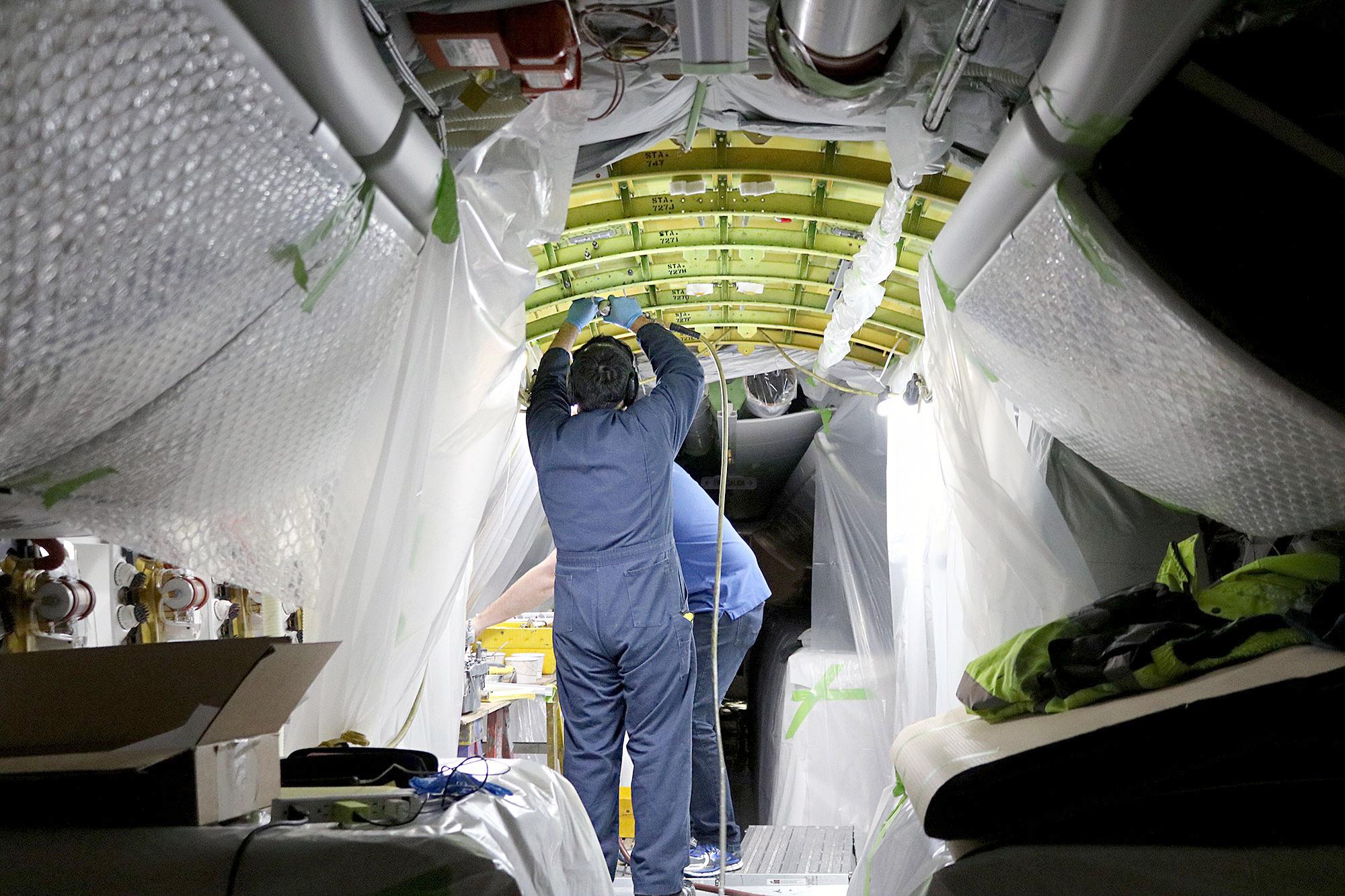Boeing Expects MRO Workforce Demand to Remain High, Despite Downturn

Despite a decrease in MRO demand and the resulting job cuts and furloughs that have arisen during the COVID-19 crisis, Boeing remains positive about industry demand for aviation maintenance technicians. In its newly-released 2020-39 Pilot & Technician Outlook, Boeing projects that there will only be a 3.9% decrease in demand for technicians over the next 20 years.
Compared to last year’s Boeing report, which projected that the industry would need nearly 770,000 new maintenance technicians through 2038, the OEM now expects there to be a global need for 739,000 new maintenance technicians over the next 20 years. While the industry downturn has resulted in a temporary decrease in technician demand, Boeing says the need for continued maintenance on parked fleets has mitigated the impacts on technician employment and that “the long-term need remains robust.” It also says “the short-term oversupply allows operators the opportunity to build their pipeline in anticipation of growth returning in the next few years.”
Demand remains strongest in the Asia-Pacific region, where Boeing says 237,000 commercial aviation technicians and 16,000 business aviation and civil helicopter technicians will be needed. It notes that North America will still need 123,000 commercial aviation technicians—unchanged from last year’s projections.
Boeing suggests that some personnel that have been furloughed will find employment in the government, business and general aviation sectors, which it says have previously struggled with staff shortages amid surging commercial demand. It projects that demand for business aviation and civil helicopter technicians remains nearly unchanged across most regions, with the total global demand only down to 132,000 technicians compared to 137,000 last year.
One change Boeing thinks will affect workforce pipeline into the future is the increased adoption of technology for training, which has become commonplace during the pandemic. According to the report, “Investments in technology that are being made today will likely lead to a long-term fundamental shift in how training is conducted.” Additionally, it expects advances in adaptive learning capabilities, artificial intelligence and learner analytics to increase personalization of training to individual students.


